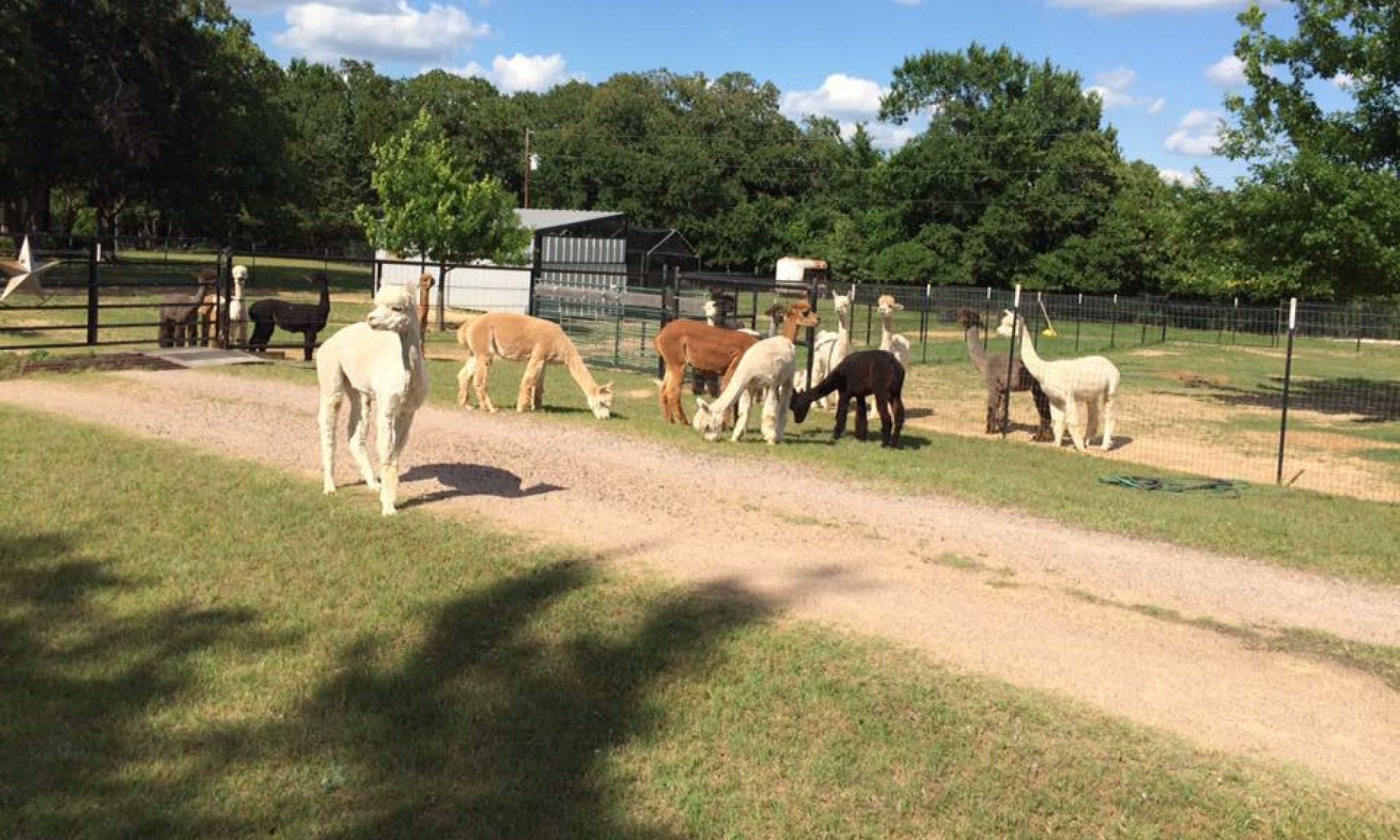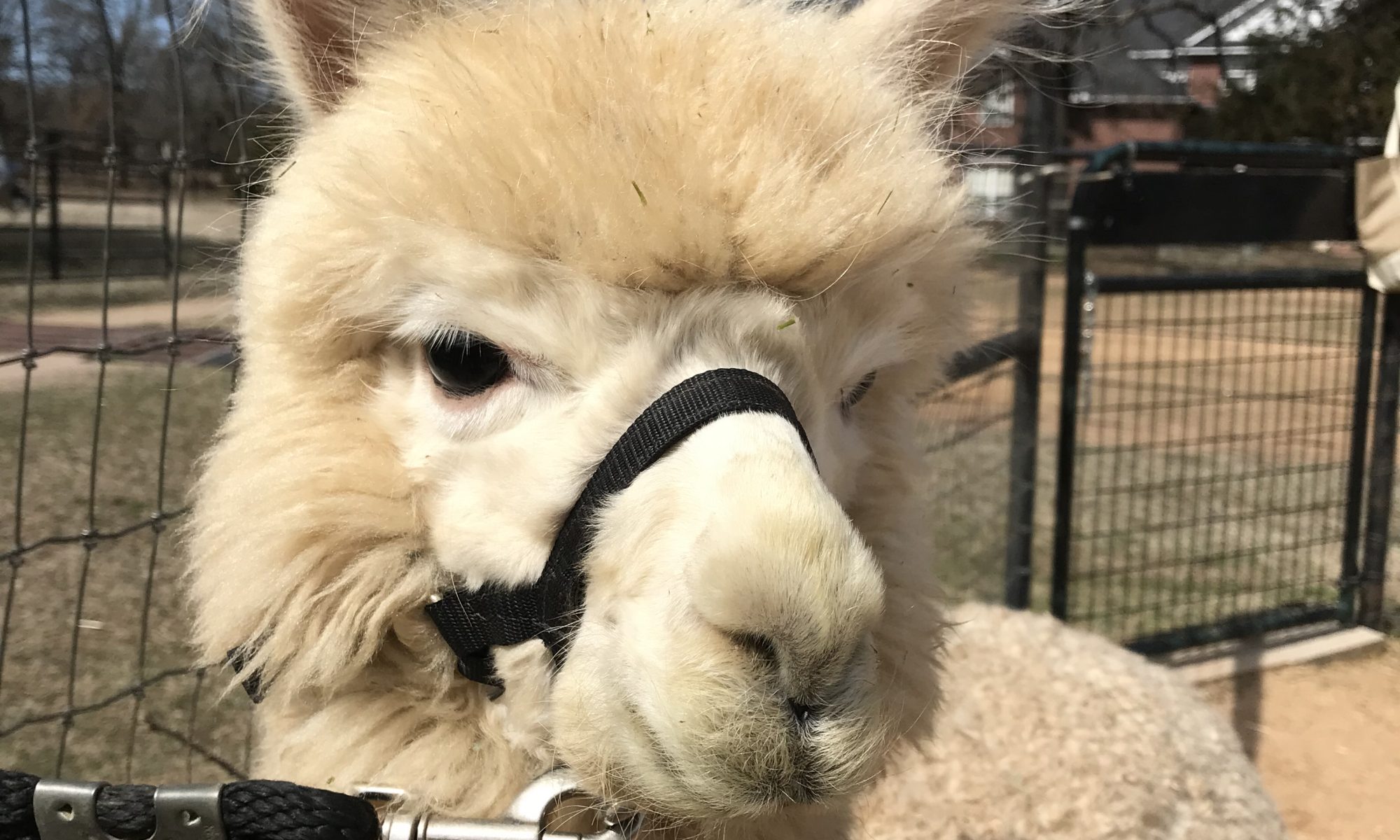Basic Alpaca Questions
We remember seeing some camelids very early in our journey. We were puzzled as to whether they were Alpacas or Llamas. If you find yourself in the same situation, look first at the ears. Llamas have longer, banana shaped ears that curl in toward the center of the head. Alpacas should have shorter, spear shaped ears pointing out in opposite directions. Alpacas are also generally smaller—about 125-175 pounds, whereas Llamas average 200-400 pounds. The head of a Llama generally has a longer nose where Alpacas more often have smaller noses. There are many other ways to tell the difference, but that’s a start for you.
The most frequent of basic Alpaca questions that many Alpaca breeders entertain are, “Can I purchase just one?” or, “I would like to buy some really young ones so that I can raise them up to like people.” Well, you may already be aware, but Alpacas are herd animals so single purchases are not possible. They should be raised for their first 9-10 months with their dam and herd as they are weaned. If you want babies (crias), the best way to have them is to have them born at your ranch. More about this later…
How Much Will I Spend?
If you limit your budget to $500 +/-per Alpaca you may not receive the satisfying experience you are seeking. Your selection will also be drastically reduced. If you are a hobbyist you really want Alpacas that are appropriately socialized and healthy. Keep in mind that dogs often sell for $1,500 – $5,000 or more. So keep an open mind about prices as you explore your options. You also may not receive the mentoring you deserve from an low-priced breeder.
An important question you need to ask yourself is, “How much is the daily care and feeding for an Alpaca?” You need to know this going in. Unfortunately there is not a one size fits all answer. You can save yourself 90% of your veterinary fees if you go with only males. A well known camelid vet has said that 90% of all Alpaca vet costs are reproduction related. Also, generally speaking, male Alpacas can be less expensive than females. Your hay costs will vary greatly by the quality and quantity of your pastures, as well as the amount of seasonal time they can graze on it. Hay costs vary significantly depending upon your region. Supplemental feed costs stay pretty predictable, but can go up if you have a skinny one.
If you have the right fencing, buildings, electrical and water supply already in place you will save a ton of money in initial costs. To give you an answer, we figure they cost us $1.50-$2.00 per Alpaca per day at the barest if minimums. Suffice it to say you can easily spend more than that though.
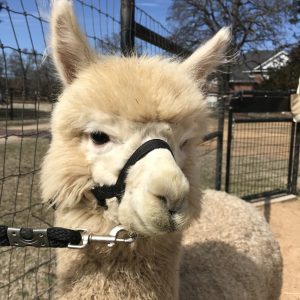
Life As a Rancher/Farmer
Be sure to consider the overall lifestyle choice of owning real livestock as one of your basic Alpaca questions. Many think of them as pets like a dog but that is not the case. Alpacas are also not the same as cattle. Generally speaking you will not be able to go away for a week or two and leave them on their own. When you take a vacation you will need to arrange for someone to take care of them. The responsibility of owning Alpacas means that you will have daily, monthly and annual responsibilities as well. It is very much a long term commitment as Alpacas live up to 25+ years.
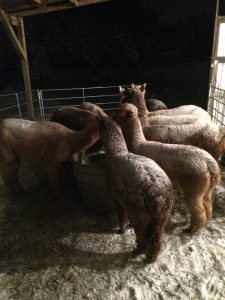
Determine what type of ranch/ownership responsibilities you want: Hobby, Fiber, Breeding & Selling, Show—the choice you make will all mean different initial costs.
Huacaya and Suri
Also, while you don’t have to make a decision early on, there are two types or breeds of Alpacas. Both Huacaya and Suri each have their own unique style and beauty. But underneath all of the distinctly different but exquisite fiber they are exactly the same.
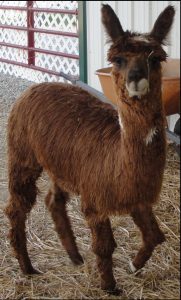
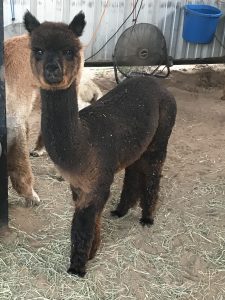
You can have one breed, or the other, or both for that matter. Just never, ever mix the breeds when or if you begin to make babies. The crossbreed has little chance of being a quality Huacaya or Suri. A side note: because llamas are cousins to Alpacas the can also be crossbred with the extremely undesirable result being named an Huarizo.
Showing
If you choose to be in the show circuit then you should search for and procure the best* Alpacas you can comfortably afford. Start with dams. It’s easier to improve your herd utilizing better herdsires. You can always purchase breedings from a ranch if you are purchasing only females.
(*”best” = Learn by asking, learn by studying and by spending time with them before you buy them. Learn from an owner/breeder who is perfectly honest about his Alpacas. A breeder that only tells you the good things really is only looking to make the sale.)
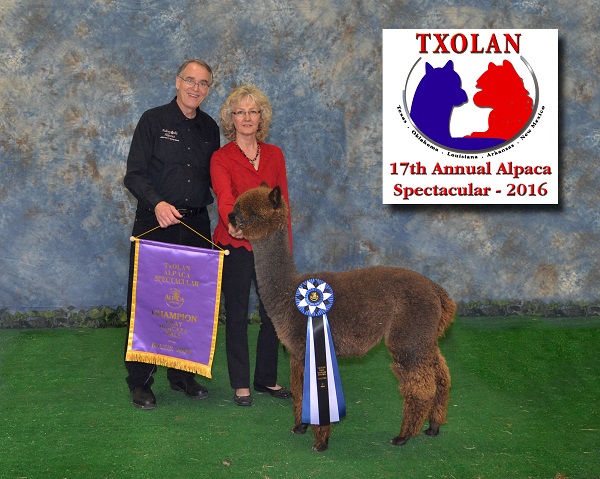
There are many rewards to showing. You will meet and enjoy all sorts of people. And while it is competitive in nature, many keen competitors are actually quite good friends.
Where to Purchase… and Not To
Buy from a reputable/ knowledgeable/ actively involved/ friendly breeder who offers their time, skill, knowledgeable and expertise as a part of the sale.
Expect to be mentored from whom you purchase after the sale; who you buy from is the 2nd most important decision you will make. Aubrey Oaks Alpacas will not bug you but are always available for your questions.
Visit several — if not many — ranches as you research your herd building possibilities. And, naturally, we would hope that you will revisit with us before you finalize any purchase! We may have Alpacas that are not on our website.
Don’t buy on the cheap on Craig’sList. You will get more problems than you will save in money. You also will probably miss out on good mentoring. (Unless you find a reputable ranch/farm that is utilizing CL in addition to other forms of marketing—as we have in the past. )
These Basic Alpaca Questions need good answers to help you succeed!
Read Next: Important Purchasing Tips
